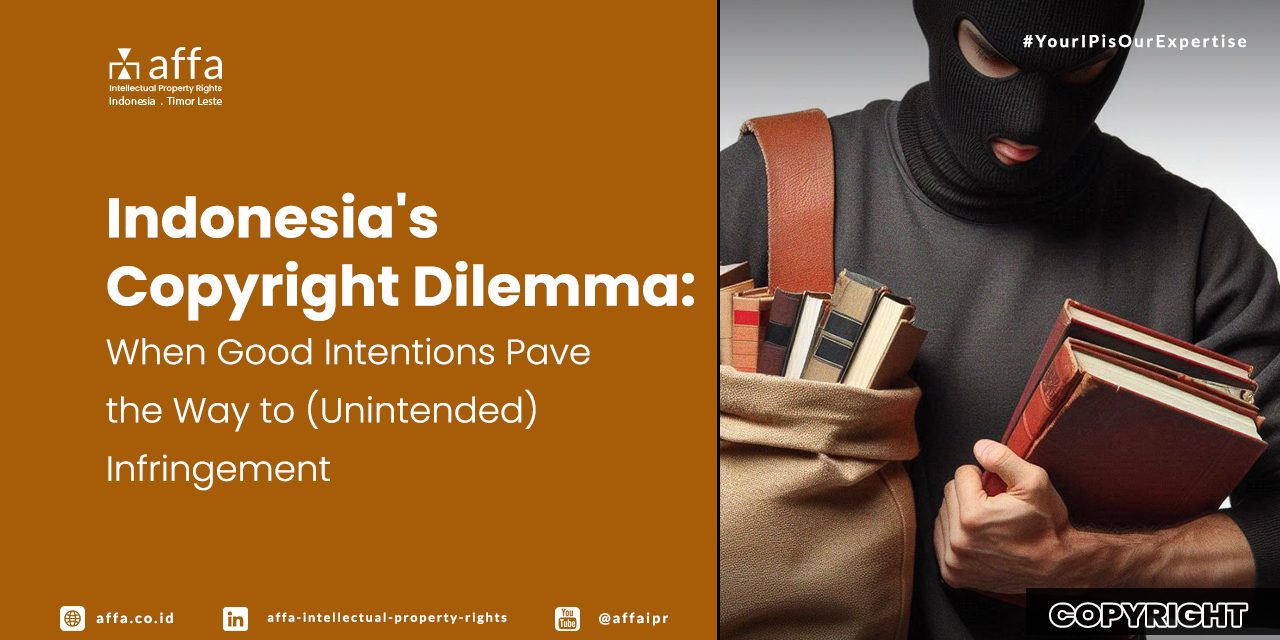Viral on Social Media about how the family of the late proclaimer of the Republic of Indonesia, Bung Hatta, objected to his speeches, which had been released in book form, being digitized and distributed free to the public by a public official for educational reasons and not for commercial purposes. Why might the family raise objections? Were any laws violated?
Suppose you have several classic books published before 1960, which contain a collection of speeches by Bung Hatta (who died on March 14, 1980), and you have done research that the publisher is no longer there. Then, it doesn’t mean you can transform the creation; in this case, make a digital version and share it for free without permission from the heirs.
Article 40 of the Copyright Law recognizes a book and a lecture/speech as protected works. Most of these books contain Bung Hatta’s speeches, not as the first Vice President of the Republic of Indonesia but as a person who gave speeches on various occasions. So, the assumption that the speech is not protected by Copyright falls.
Specifically, the Copyright Law regulates Moral and Economic Rights, which are creators’ Exclusive Rights. In this case, Bung Hatta gets Moral Rights without time limits and Economic Rights for up to 70 years after his death. If we calculate that Bung Hatta died in 1980, his Economic Rights will still be valid for 70 years starting January 1 of the following year (1981) and will only end in December 2050.
Sanctions for Transformation & Distribution of Works Without Permission
Transforming activities are considered a different Copyright violation than the distribution of works. So parties who create a digital version of a book and share the link without permission can be subject to two articles at once, namely the Copyright Law Article 113 Paragraphs (2) and (3):
- a maximum imprisonment of 3 (three) years and/or a maximum fine of IDR 500,000,000.00 (five hundred million rupiah) for transforming without permission; And
- a maximum prison sentence of 4 (four) years and/or a maximum fine of IDR 1,000,000,000.00 (one billion rupiah) for distribution without permission.
But what if you argue that you’re doing it for free?
For educational reasons and not charging fees by distributing it for free, you could say that this activity does not harm the reasonable interests of the Creator, known as the term “Fair Use.” However, it would be best to remember that Fair Use does not look at elements of commercialization. As long as the Copyright holder objects, you can be considered violating Copyright.
The basis is stated in the Explanation of Article 44 paragraph (1) letter a of the Copyright Law, which states “Reasonable Interests of the Creator or Copyright Holder” are interests based on balance in enjoying the economic benefits of a Creation, and it is proven that Bung Hatta’s family has submitted object.
Reasons for Bung Hatta’s Family to Object
In their statement via social media X (Twitter) on June 9, 2024, the family of Halida Hatta, Bung Hatta’s youngest daughter, expressed disappointment from Bung Hatta’s heirs over the piracy of Bung Hatta’s writing, which was shared on social media X. In another statement, the heir reminded us that even though the post was taken down, it can still be prosecuted legally.
The heirs stated that since 1988, Meutia Farida Hatta, the first daughter of Bung Hatta, together with the publisher LP3ES, have collected his works, up to 9 (nine) volumes, so that his writings do not disappear and can be accessed by the public, both by purchasing the physical book in a bookstore or online, or accessing it for free at the National Library.
In their follow-up statement, the heir stated that Bung Hatta’s family had followed the Copyright Memoir, which were published in 1978 by the publisher Tinta Mas before being republished by the publisher Gramedia and then collected and republished by LP3ES. The family does not intend to share or publish it themselves because they are paying respect to the Economic Rights of each publisher. And for now, all of Bung Hatta’s works can be purchased officially at the LP3ES Book Gallery.
Therefore, if you have good intentions to share educational information from a book, especially if you want to share the entire contents of the book for free, the most important thing you have to do is contact the heirs of the Creator. This is because you will get legal information about a work. For example, who is also the Copyright holder for the work, whether it can still be obtained legally, or when the Copyright protection period ends?
So don’t assume that non-commercial actions you carry out without permission will not have legal consequences. The Copyright Law guarantees that Moral and Economic rights are the Exclusive Rights of the Creator and his heirs until the work falls into the Public Domain.
You might also want to read:
Demystifying the Public Domain: Permissions and Limitations
Should you need further information regarding Copyright and Intellectual Property protection in Indonesia or abroad, do not hesitate to contact us via email: [email protected].








1 Comment